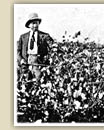
Greek capitalists, and especially those living in Ottoman territory,
realized the political consequences that would follow on from these developments and so moved their businesses and industries closer to the capital.
After 1900 the presence of Greek mercantile communities abroad (paroikies) made itself increasingly felt in the economy. If, in the previous phase, the Greeks of the diaspora
were interested in brokerage investments and generally in speculation in Greece (as became evident from their choices regarding the former Turkish chiftliks
in Thessaly), their attitude now changed. They now began to think of more permanent relations with Greece and to stake their chances for the sake of their social and economic futures on the likelihood
of the political and military supremacy of Greece. For the first time the defences of the country was systematically financed by paroikies capitalists, a characteristic example being
the purchase of the battleship Averoff by Georgios Averoff, whereas in the past private industrialists had sponsored
cultural and educational projects.
Even more characteristic was the political involvement of the paroikies capitalists after Goudi's coup and their reinforcement of
the reforms of Venizelos in the period 1910-20. They participated in the political
conflict and for the first time took on responsible political posts, at the same time as
shaping multi-sided personal and economical relations with the Venizelist
political bloc. Apart from the economic support of the war venture, they
spent large sums in organizing external propaganda,
that is, in strengthening the image of the country abroad.
|
 |
